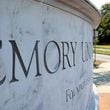HOW WE GOT THE STORY
The Atlanta Journal-Constitution has been the leading media outlet in the country to expose problems at the VA’s Health Eligibility Center in Atlanta, which oversees the eligibility process for veterans seeking access to the VA’s network of medical facilities. The AJC was the first to report on the backlog of health care applications from veterans, and the newspaper’s reporting helped bring forward whistleblowers who have provided information to Congress and investigators. For this story, investigative reporter Brad Schrade reviewed hundreds of pages of internal VA records and interviewed key VA leaders about his findings. The AJC will continue to investigate this national story.
Log on to MyAJC.com to read the VA’s own analysis of the backlog of pending health care applications, and letters from Congress to VA leadership critical of the agency’s transparency.
Senior VA officials pushed untrue and misleading information to veterans, the public and Congress to blunt a potential scandal involving a backlog of hundreds of thousands of applications for access to VA health care, an Atlanta Journal-Constitution investigation has found.
The misinformation came from top officials at the VA’s national Health Eligibility Center (HEC) in Atlanta and senior officials in Washington, and contradicted what the VA’s staff was reporting to their superiors about the application backlog.
The officials misrepresented data to downplay the number of veterans waiting for a health enrollment decision from VA. They tried to assert that many of the veterans in the backlog had not actually applied for healthcare when internal documents showed those statements to be false.
The findings come as new VA Secretary Robert McDonald is trying to restore credibility to a beleaguered agency tarnished by long waits for veterans at VA health facilities, mismanagement and retaliation against whistleblowers. McDonald, through a spokesman, declined to be interviewed for this story.
Last month, the VA's acting inspector general Richard Griffin testified before a Senate committee about lies told to investigators about scheduling delays and problems in the health care system. And Congress has accused the agency of repeated falsehoods.
Rep. Jeff Miller, R-Florida, who chairs the House veterans’ affairs committee, said the deceptions uncovered by the AJC fit into the broader problem at VA where agency officials try to mislead in the face of any investigation that targets the quality of their service to veterans.
“A great deal of the information that they do supply to the committee is either factually wrong or at best misleading,” Miller said. “If they will lie or mislead Congress, I can not imagine what they would do to a veteran.”
The problems with the backlog of health applications remained largely under the radar, thanks to the low-profile VA agency in Atlanta that oversees the enrollment process for a system serving 8.9 million veterans. That changed this summer after an AJC investigation exposed the extent of the backlog and the failure of an online enrollment system rolled out four years ago. The problems, largely ignored by VA leaders for more than two years, delayed veterans access to the health care that they had earned through military service.
The backlog is also the target of separate investigations by the VA Office of Inspector General and the House veterans’ affairs committee.
By May of this year as many as 896,000 veterans health applications were stuck in an administrative limbo without an enrollment decision from the VA. Veterans cannot use VA medical care until they have been approved for eligibility. As many as 47,786 of veterans in the backlog were deceased as of 2012, raising the possibility that some veterans died before they could access care.
Following the AJC's Aug. 17 article, VA officials posted information to a blog on the VA's official website — under the heading "VA Fact" — that claimed the backlog contained only 216,736 applications, a quarter of what it had reported to Congress the previous month.
The post, targeted at veterans, claimed that only 25 percent of the pending applications were "true applications." The claim has been repeated by VA's senior public relations officials in Washington, including acting assistant secretary for public affairs Josh Taylor.
An internal VA analysis reviewed by the AJC contradicts the claim.
The internal analysis by the HEC staff, obtained from whistleblower Scott Davis, said the agency actually had no way to determine how many of the hundreds of thousands of pending records were not applications. It said that many in the backlog represented veterans who applied for health care and that the "bottom line is that we did have 896,237 pending as of May 2014."
HEC employees were concerned about the misinformation from top officials and they found their statements to be misleading, according to interviews and records reviewed by the AJC.
“It was a willful attempt to deceive the nation’s veterans,” said Davis, a program specialist in the HEC. “They’ve known about this for years. They cut and pasted information to suit their purposes. The time we’ve spent covering this up we could have actually addressed the problem.”
Stephanie Mardon, the acting chief business officer for the Veterans Health Administration, said she stands by her Aug. 17 blog post, including the assertion that only 25 percent of the pending records are “true applications.”
“That’s the information and research at the time,” Mardon said. “We’re continuing to conduct additional research. But no, it’s not in any way, shape or form, in my opinion, in anything misleading. It’s an assumption we made based on the best research we had at the time and continue to have relative to what’s in a pending status.”
Data flaws
The VA has not provided the AJC with records from the studies they cite to support the assertion that the backlog is much lower than 890,000. The central argument put forth by Mardon and Deputy Chief Business Officer Lynne Harbin is that only 25 percent of the applications are “true applications” because those are the only ones that have an application date associated with them in the enrollment system.
But the internal analysis prepared in August states that the date field is not reliable to establish if an application is valid or not. Many applications lack dates because of data integrity flaws.
“Having an application date in the Enrollment System has no bearing on whether the Veteran has requested care or submitted an application,” the report said, adding that “many Veterans who have actually applied for health care do not have an application date in our systems.”
The report acknowledged that some of the 890,000 in pending status may not be applications of veterans waiting for health care. But it made clear that figure is unknown.
“Many records in a pending enrollment status represent Veterans who actually applied for health care, while some records do not,” the internal analysis said. “The inability to identify which records represent an actual application for health care makes our challenge greater.”
‘Skirt the issue’
The day after Mardon’s August VA blog post, senior leaders at the HEC in Atlanta called a series of “town hall” meetings with the agency’s 300 staff members.
HEC director Benita Miller and her management team presented slides with talking points about the application backlog and touted their efforts at transparency. She asked staff to raise their hands if they thought the agency leaders had been transparent. Only a handful of employees did, according to two people who witnessed the meetings.
“It was like a comic on stage that told a joke that fell flat,” said Daphne Ivery, the union president at the HEC, and one of the whistleblowers who has spoken to investigators about problems at the HEC. “Really? Are you serious? You really want us to buy into this again. What they need to do is come clean. Say ‘We screwed up.’ Until they acknowledge that, admit there’s a problem, they can’t fix it.”
Documents reviewed by the AJC show that the agency also hasn’t been transparent with veterans service organizations such as the American Legion.
When the American Legion requested to know how many veterans were waiting on a decision about their health care eligibility in late 2013, Harbin, who oversees the HEC, directed her staff to prepare a presentation for a meeting with veterans service groups.
A version of Harbin’s slide presentation had a glaring omission. It failed to provide the total number of applications awaiting action from the VA. The omission was intentional.
“I don’t think I want to go into the total number of pending records and will try to skirt the issue, should they try to raise it,” Harbin wrote in a December 2013 e-mail to her staff.
In an interview with the AJC, Harbin said she wanted to avoid the subject in the meeting because the total number “doesn’t tell the entire story” and that to represent them all as applications is wrong.
“I believe in the meeting we actually did talk about the total number,” Harbin said. “We also talked about the actions we’re taking to try to outreach to veterans in pending status regardless of whether or not they actually did apply.”
Roscoe Butler, an official with the American Legion who attended the meeting with Harbin, had a one-word reaction when Harbin’s email about skirting the backlog was read to him: “Wow.”
“That just suprises me, particularly with the spotlight on the VA right now,” he said.
Getting to the bottom of the backlog may require an outside audit by an independent agency, said Butler, the Legion’s deputy director for health care.
Butler and another American Legion official met again earlier this month with Harbin and her staff about the backlog. He said it’s hard to believe that so many pending records are not applications, and that the Legion wants clarification.
“We want them to be forthright regardless whatever the consequences are,” said Butler, who retired from VA’s chief business office in 2011. “They should be forthright and tell us what the issues are…That’s the only way as veterans’ services organizations we can help. If we go into meetings with them and they are not truthful with us, then we’re not able advocate for our veterans.”
‘Not backlogged’
By 2012, the backlog had become a major concern across VA’s 152 hospitals and medical centers. A flaw in a new online application rolled out in 2010 exacerbated the problem because it had no way for veterans to upload their discharge papers that prove their military service. In internal communications to enrollment coordinators across the VA, the HEC staff laid out these problems and made it clear that they were delaying veterans access to health care.
Yet, publicly, senior VA leaders can’t even bring themselves to refer to hundreds of thousands of applications in their files as “a backlog.” In response to questions from Congress, the VA in July said the applications were “not backlogged,” a position Harbin and other senior officials have reiterated in interviews with the AJC.
“As we’ve learned more about these records we know they are not backlogged,” Harbin said. “They are processed to their fullest extent and we are committed to that.”
If HEC leaders have their way, the problem may soon disappear. They are advancing a plan that would allow them to remove veterans from the backlog if they don’t respond to a letter. A separate outreach campaign begun last year has enrolled 16,692 veterans from the pending list.
The latest plan will require regulatory approval at the highest levels of VA in Washington. A decision could come as early as this month. If approved, the HEC office in Atlanta would expand the mail campaign to all veterans on the pending list. Some have been on the list for years. If the veterans don’t respond to the outreach within a year, the agency can remove them from pending status.
“Our plan is once we require a regulatory change in order to be able to move them out of a pending status,” Harbin said. “Once that occurs their status might change.”
Harbin’s own slide presentation created last December said letters are “effective, but only 8% of Veterans respond”.







